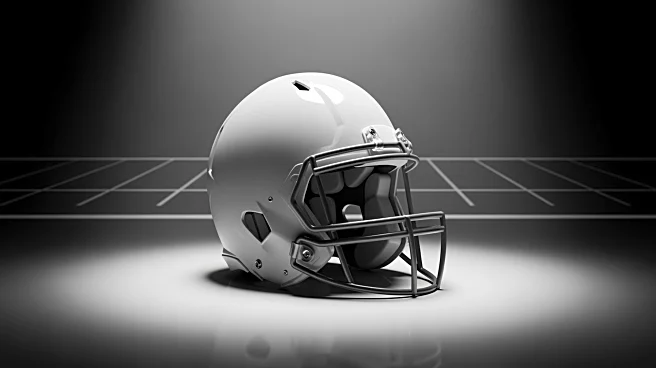What's Happening?
Giants quarterback Jaxson Dart's recent concussion diagnosis during Week 10 will not lead to an investigation by the NFL and NFL Players Association (NFLPA). Despite video evidence suggesting Dart should
have been evaluated sooner after a head impact, the league and union have opted not to review the incident. This decision follows a previous Week 6 concussion evaluation that did trigger an investigation, resulting in $315,000 in fines for protocol violations. During the Week 10 game, Dart continued to play for over four minutes after his head struck the ground, before being removed for a concussion evaluation. He was subsequently placed in the concussion protocol.
Why It's Important?
The decision not to investigate raises concerns about the effectiveness of the NFL's concussion protocols and the role of spotters tasked with identifying potential head injuries during games. The lack of review could impact player safety and the league's commitment to addressing head injuries. Stakeholders such as players, teams, and medical professionals may question the consistency and reliability of the concussion management system. The incident highlights the ongoing debate over player health and safety in professional sports, particularly in football, where head injuries are prevalent.
What's Next?
While no investigation will occur, the incident may prompt discussions among teams and the NFL regarding the adequacy of current concussion protocols. The league might face pressure to enhance its procedures to ensure player safety and prevent similar situations. Advocacy groups and medical experts could call for stricter enforcement and transparency in handling head injuries. The NFL's approach to concussion management may be scrutinized, potentially leading to policy changes or increased oversight.
Beyond the Headlines
The decision not to investigate could have ethical implications, questioning the league's responsibility to protect its players. It may also affect public perception of the NFL's commitment to player welfare. Long-term, this incident could influence how sports organizations address concussion protocols and player safety, potentially leading to broader reforms in sports medicine and athlete care.











